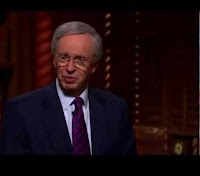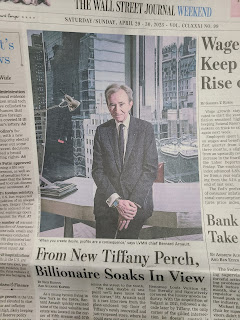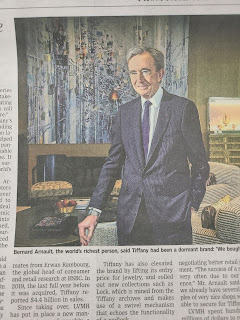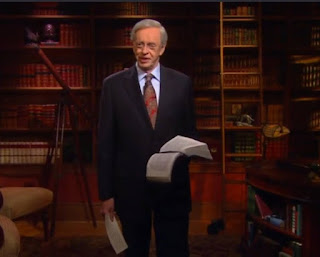In comparison, Charles Stanley, his look-alike, had a very common ground-level view, but if Stanley could see the masses of individuals whose lives’ he impacted, the view would be vast and colorful. Maybe he sees that today in eternity. The reality is that Charles Stanley’s riches far surpass Bernauld Arnault’s because human life is the most valuable commodity on earth.
There are many noble traits that demonstrate the value of humans, love, comfort, compassion, altruism, beautiful art, babies, etc. But even war and conflict prove the point that humans are the most valuable thing in the world. Next time you see people arguing or bombing each other, look at what the bottom line is, generally it will be for control of, or possession of, humans. At first look the conflict may appear to be land, wealth or power but remove humans from the picture completely and any of those goals now has little value.
Think about this…if you remove the humans from the planet…what do you have? Why is anything here? Trees, flowers, mountains, streams, animals and so on are here for the use of humans, not the other way around. We are not on this planet for the planet’s sake. The planet exists for our sake. Those humans who destroy nature do not change facts. The fact that the planet is here for us to enjoy and manage and not vice versa might be clouded by bad actors, but the fact remains.
Each human is an eternal being. The only thing that will follow you into eternity is other humans. U.S. currency, or any world currency, is useless in eternity, meaningless. As are buildings, precious metals, or any other item that we accumulate in a lifetime, except humans.
Charles Stanley is still one of the world’s richest men. He is alive, his eternal life goes on somewhere on the other side of mortal life, and he has immeasurable riches. The riches are other humans who entered and will enter eternal life with rewards, in part due to what he focused his life on, the life giving principles found in the Old & New Testaments.


